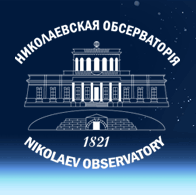|
2011-02-24 11:16:06
March 30, 2010 in the Circular Center of the Minor Planet a report about the conferment
to a minor planet number 14339 KNORRE name was published. This asteroid, which was discovered by the astronomer of Crimean Astrophysical Observatory, Lyudmila Ivanovna Chernykh, in April 1983, by the decision of the International Astronomical Union and by the proposition of the discoverer was named after the dynasty of Knorre astronomers.
The Dynasty includes three generations of astronomers who worked from 1794 to 1919 in
observatories of Tartu, Pulkovo, Nikolaev and Berlin. Christoph Ernst Knorre (1759-1810) is the dynast. When he was director of Dorpat girls' school, in 1795, he started to study Practical Astronomy as a hobby, and began to write in a diary all the results of his work.
In 1802 when Dorpat University was opened, Ernst Knorre became an assistant professor of mathematics and astronomer and the observer of the temporary University observatory. When he died in 1810 it was the end of his career in astronomy. His son, Karl Friedrich Knorre was the first astronomer of the Black Sea fleet. He was 19-year-old boy when Admiral A. Greig (1775-1845) invited him to Dorpat Observatory to head the Navy Observatory in Nikolaev which had been under construction. He was director of the observatory for 50 years and became famous for his multisided activities.
|




